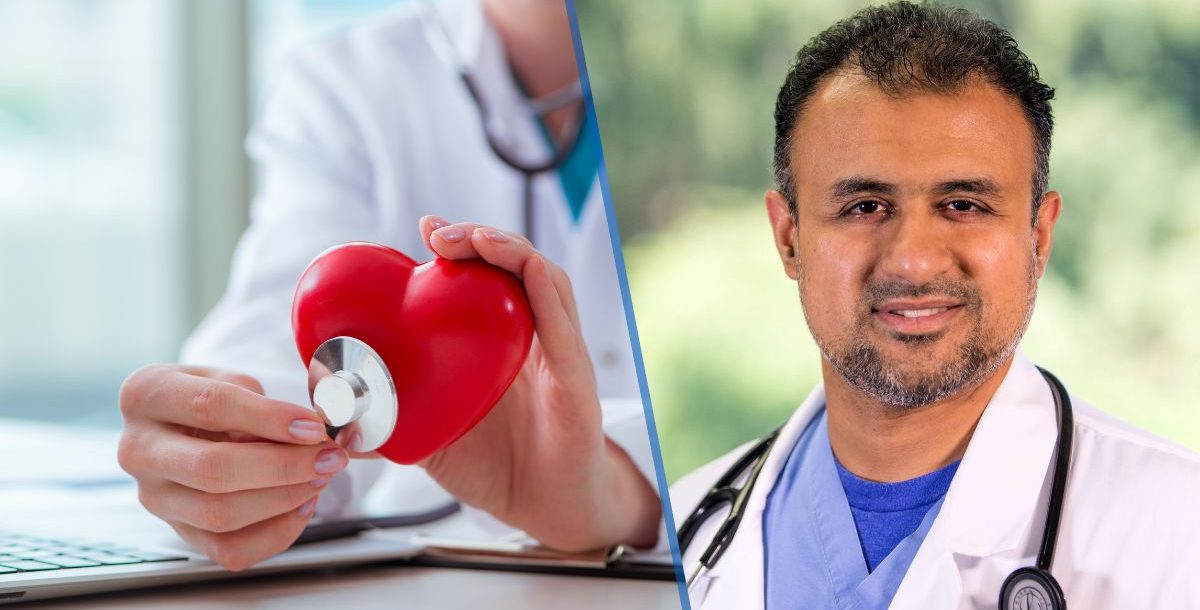When it comes to the complex and vital organ that is our heart, seeking expert help can feel overwhelming. Luckily, our ministry employs many types of cardiologists specializing in distinct areas so we can provide the best care for our patients. However, understanding who does what can be confusing.
We talked with Muhammad S. A. Ashraf, MD, a cardiologist at Mercy Health — Springfield Heart House, to help us explore the diverse expertise offered by these heart specialists.
How many types of cardiologists are there?
“Cardiology itself isn’t just one domain; it’s a vast field with numerous subspecialties,” Dr. Ashraf explains.
So, while exact numbers can vary depending on how you categorize them, you’ll find dozens of specialized areas within cardiology, each tailored to address specific heart conditions and concerns. This diversity ensures you can receive highly focused care based on your unique needs.
First up, general cardiologists.
You can think of general cardiologists as your primary care physicians for the heart.
“They diagnose and treat a wide range of common heart conditions, like coronary heart disease, heart failure and high blood pressure and manage your overall cardiovascular health,” Dr. Ashraf explains.
General cardiologists also conduct routine checkups, perform tests like stress tests and electrocardiograms (ECGs), as well as prescribe medications. If you have a more complex issue, they’ll refer you to the appropriate subspecialist.
Next, specialized cardiologists.
If your heart health concern falls outside the general scope, this is where subspecialists come in. And each have their own area of expertise.
- Cardiac electrophysiologists: They deal with the heart’s electrical system as well as diagnose and treat abnormal heart rhythms (arrhythmias), like atrial fibrillation. They also perform procedures like implanting pacemakers and defibrillators to regulate your heart’s rhythm.
- Interventional cardiologists: These experts focus on minimally invasive procedures using catheters inserted through blood vessels. They can open blocked arteries with angioplasty and stents, repair faulty heart valves and close holes in the heart.
- Cardiac imaging specialists: They utilize advanced imaging techniques, like CT scans and echocardiograms, to create detailed pictures of your heart, helping diagnose various heart conditions.
- Adult congenital heart specialists: These cardiologists care for adults born with heart defects, managing their unique needs as they transition from pediatric to adult care.
- Cardio-oncologists: This niche specialty focuses on the heart health of cancer patients, mitigating risks associated with cancer treatments and managing cardiovascular complications.
Do all cardiologists perform surgery?
“No, not all cardiologists perform surgery,” Dr. Ashraf shares. “Cardiac surgeons, a separate discipline, specialize in open-heart surgery for complex conditions like coronary artery bypass or valve replacements.”
While some cardiologists, like interventional cardiologists, perform minimally invasive procedures, they don’t typically perform traditional open-heart surgery.
How do I choose the right cardiology specialist for me?
Finding the right cardiologist first requires understanding your specific needs and concerns.
Consider the following:
- Your heart condition: What diagnosis do you have, or what are your concerns?
- The severity of your condition: Is it a newly diagnosed issue or a complex, ongoing one?
- Treatment options: Do you need medication management, minimally invasive procedures or surgery?
- Personal preferences: Do you prefer a specific gender or communication style?
And also, remember to:
- Consult your primary care provider for an initial evaluation and referral based on your needs.
- Not hesitate to ask questions about the cardiologist’s expertise and experience in your specific area of concern.
- Consider patient reviews and recommendations from trusted sources.
Different types of cardiologists exist to provide specialized care for diverse heart conditions. By understanding their expertise and your needs, you can navigate this vital health care decision with confidence and ensure you receive the most appropriate care for your unique heart.
Want to learn more about your heart health? Take our online heart risk assessment today.
Also, learn about the heart and vascular services we provide at Mercy Health.






